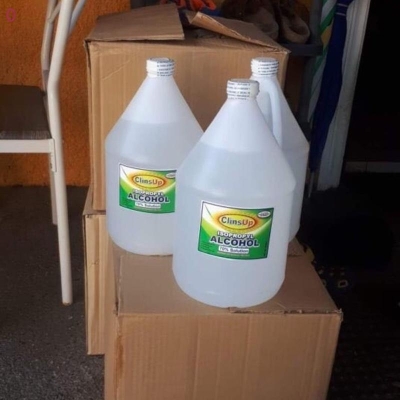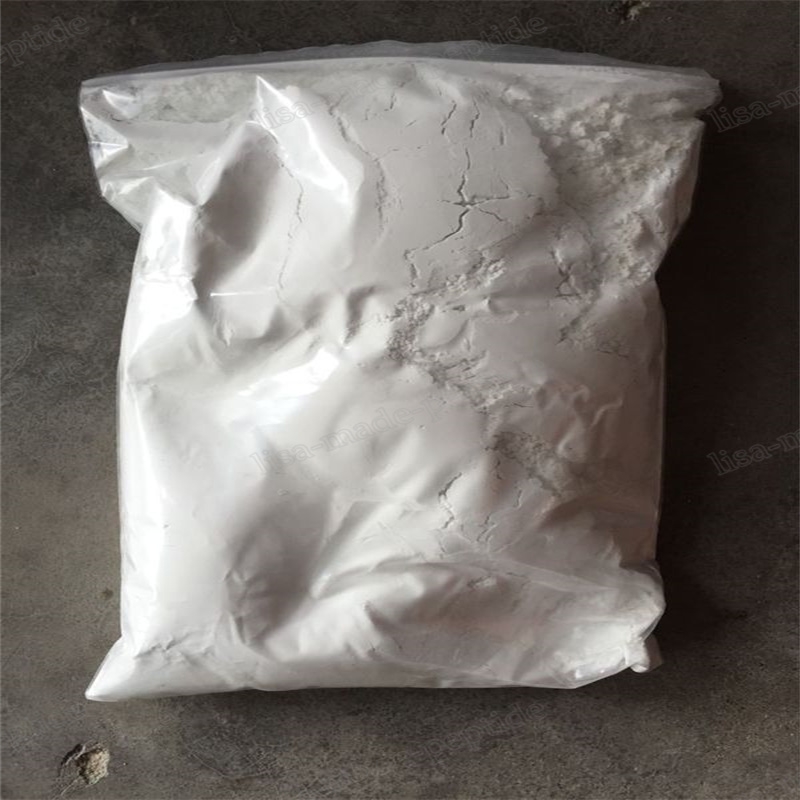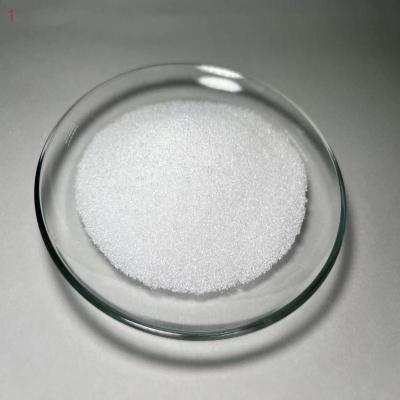-
Categories
-
Pharmaceutical Intermediates
-
Active Pharmaceutical Ingredients
-
Food Additives
- Industrial Coatings
- Agrochemicals
- Dyes and Pigments
- Surfactant
- Flavors and Fragrances
- Chemical Reagents
- Catalyst and Auxiliary
- Natural Products
- Inorganic Chemistry
-
Organic Chemistry
-
Biochemical Engineering
- Analytical Chemistry
-
Cosmetic Ingredient
- Water Treatment Chemical
-
Pharmaceutical Intermediates
Promotion
ECHEMI Mall
Wholesale
Weekly Price
Exhibition
News
-
Trade Service
Recently, the Emergency Management Department of Shandong Province issued the "Grading Measures for the Standardization Construction of Enterprise Safety Production"
.
The original text is as follows:
In order to conscientiously implement the "Notice of the Ministry of Emergency Management on Printing and Distributing the "Grading Measures for the Standardization of Enterprise Work Safety" (Jiangong [2021] No.
83, hereinafter referred to as the "Grading Measures"), to further standardize and promote the standardization construction of work safety in our province.
(hereinafter referred to as “standardization”), the relevant matters concerning the province’s standardization and grading work are hereby notified as follows:
01 Rating range
The province's non-coal mines, chemicals (including petrochemicals), pharmaceuticals, hazardous chemicals, fireworks, oil exploration (excluding offshore oil), metallurgy, non-ferrous metals, building materials, machinery, light industry, textiles, tobacco, commerce and other industries Standardized grading work should be carried out in accordance with the "Grading Measures" and the requirements of this notice
.
The specific scope of the industry and trade industry shall be implemented in accordance with the “Notice on Revision of the Safety Supervision Classification Standards for Metallurgical Nonferrous Building Materials Machinery, Light Industry, Textile Tobacco Trade Industry (Trial)” (Emergency Department [2019] No.
17) by the General Office of the Ministry of Emergency Management
.
If the state has other provisions, such provisions shall prevail
.
02 Grading organization
(1) The grading department
.
The emergency management departments at the provincial, city and county levels are the second-level, third-level, and small and micro-enterprise grading departments in the industrial and trade industries respectively
.
(2) Organizational units
.
According to the actual situation and work needs, the grading department can determine the public institution or social organization engaged in work safety related work as the standardization grading organization through the government purchase of services, and can also determine the public welfare institution to which it belongs as the standardization grading organization.
.
(3) On-site review
.
The grading department can entrust the unit engaged in work safety related work to be responsible for the on-site review through the government's purchase of services, or it can directly organize reviewers (including review experts and reviewers) from the public welfare institutions identified as the organizational unit to conduct on-site review
.
(4) Evaluation fees
.
Standardization and grading work shall not charge enterprises any fees, and shall be guaranteed by the emergency management departments at all levels included in the safety production budget
.
03 Grading Procedure
(1) Standardize the review process
.
Standardized grading is carried out according to the procedures of self-assessment, application, acceptance, review, publicity and announcement
.
It is necessary to actively apply the standardized information system, achieve online declaration, acceptance and dynamic management, and achieve "paperless" materials and "zero errands" in the process
.
(2) Strictly create conditions
.
Enterprises should carry out standardization construction independently, so that all employees can participate
.
The establishment of an enterprise shall not be entrusted to a third-party organization.
If technical support is really needed in the initial stage of establishment, a safety production technical service organization or expert may be hired to provide consulting and training services to the enterprise
.
In addition to meeting the general conditions of Article 8 of the "Grading Measures", the enterprise application should also meet:
Enterprises applying for the second-level classification have not had any production safety accidents within 3 years before the date of application.
Statistics and analysis of the number of accidents, the rate of serious injuries to 1,000 people, and the rate of serious injuries have decreased or remained the same year by year.
Effective operation for more than 3 years
.
Industry-leading newly established enterprises that have actively carried out standardization creation work and have been operating effectively for more than 3 years can directly apply for secondary grading
.
Enterprises applying for three-level grading shall have no production safety accident within 2 years before the date of application.
Statistics and analysis of the number of accidents, the rate of serious injuries to thousands of people, and the rate of serious injuries have decreased or remained the same year by year
.
(3) Strictly control the quality of the review
.
The on-site review should select review experts and reviewers who meet the professional requirements to form an on-site review team.
Among them, there are generally no less than 5 on-site review experts for the second-level rating, no less than 2 reviewers in general, and on-site review experts for the third-level rating.
Generally, there should be no less than 3 people, and generally no less than 1 reviewer
.
The on-site review time is generally no less than 2 days for large enterprises, no less than 1.
5 days for medium-sized enterprises, and no less than 1 day for other enterprises
.
The evaluation process should effectively combine the evaluation of the construction of the dual prevention system with the standardized grading
.
Before the official introduction of the "Basic Specifications for Enterprise Work Safety Standardization" (GB/T33000-2016), the occupational health aspects in the relevant scoring rules shall be treated as missing items
.
04 Reviewer management
(1) The reviewers shall meet the following conditions:
1.
The requirements of Article 4, paragraphs 1 and 4 in the "Shandong Provincial Emergency Management Expert Selection and Implementation Measures" (Provincial Emergency Management Office [2021] No.
3);
2.
Participated in relevant training on safety production standardization at or above the provincial level;
3.
It is not allowed to conduct review work in 3 or more safety production technical service institutions at the same time;
4.
Other conditions that review experts should have
.
(2) The reviewers should meet the following conditions:
1.
Have a university degree or above in a major that is recognized and reviewed by the state, and have been engaged in safety production for at least 2 years;
2.
Possess the qualification of intermediate or above engineering title;
3.
Participated in relevant trainings related to safety production standardization at or above the provincial level, and shall not be employed in two or more safety production technical service institutions at the same time;
4.
Other conditions that reviewers should have
.
(3) Management of performance of duties
.
The second-level on-site reviewers are included in the provincial standardization reviewer database by the second-level grading organization for unified management, and are called in a "double random" method, and the third-level on-site reviewers are implemented by the municipal grading departments
.
The on-site reviewers shall carry out the review work in a fair and equitable manner in strict accordance with the regulations, standards and norms of safety production, and be responsible for the authenticity and scientificity of the technical review conclusions made
.
Strictly abide by the confidentiality commitment and avoidance system, shall not disclose the technical and commercial secrets of the review enterprises, and take the initiative to withdraw from the enterprises that have technical services
.
If the grading department or grading organization unit finds that the on-site reviewers violate the regulations, they will no longer use it as the case may be
.
05 Supervision and management
(1) Strict review process control
.
The grading department should strengthen the supervision and management of organizational units, on-site assessment units, and units engaged in work safety standardization and assessment personnel.
The grading department or organizational unit may send personnel to supervise the on-site assessment work.
If the review conclusion is inaccurate, the third-party agency acts as an agent, the report is similar to plagiarism or has obvious errors, etc.
, the main person in charge of the relevant unit shall be interviewed; it is found that the organization unit, on-site review unit and reviewers participate in the standardized training and consultation related work of the reviewed enterprise.
Or if there are acts such as charging corporate fees or issuing false reports, they will be reported to the grading department in accordance with procedures to cancel the qualifications of relevant units and personnel, and will be dealt with severely in accordance with laws and regulations
.
(2) Adhere to dynamic management
.
In the process of routine supervision and law enforcement, if an enterprise is found to be in the circumstances of Article 11 of the "Grading Measures", the grading department shall announce the revocation of its grading and take relevant measures as required
.
Organizations should conduct random checks on the continuous operation of standardized enterprises, at least once in each evidence collection cycle, to ensure the effective operation of the standardized management system
.
(3) Improve the incentive mechanism
.
Emergency management departments at all levels should, in accordance with the requirements of Article 12 of the "Grading Measures", continuously improve the incentive mechanism, actively coordinate with relevant departments to take effective incentive measures, and give priority to providing credit, giving priority to evaluation from safety and liability insurance discounts, work-related injury insurance premium rates, and priority.
Guide and encourage enterprises to carry out grading work in terms of first evaluation and excellence
.
At the same time, the standardization construction situation is regarded as an important basis for hierarchical and classified supervision, and differentiated supervision is implemented for enterprises of different levels
.
In the case of resumption of production acceptance after production suspension, priority shall be given to resumption of production acceptance according to the standardization level from high to low
.
(4) Each municipal emergency management department may study and formulate three-level grading work opinions based on actual research, and guide county-level emergency management departments to formulate standardized grading methods for small and micro enterprises in the industry and trade industries
.







